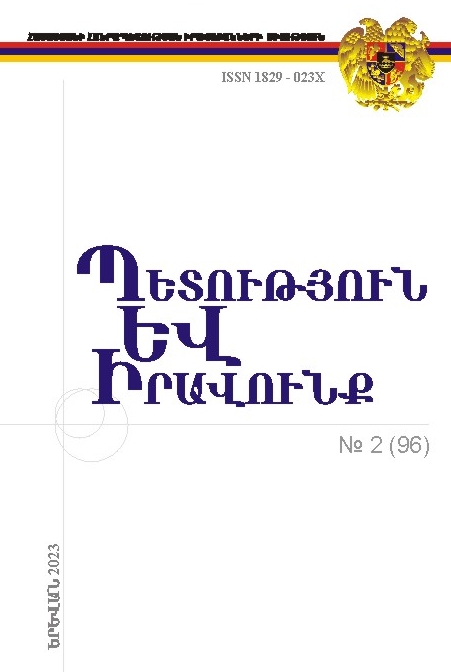“WHEN IN DOUBT, FOR THE ACCUSED” (IN DUBIO PRO REO)
DOI:
https://doi.org/10.46991/S&L/2023.96.200Keywords:
the principle of doubt, rule of proof, decision rule, process requirements, alibi, circumstantial fact, assessment of evidenceAbstract
In dubio pro reo - in case of doubt for the accused. This basic principle of criminal law is widely known. But as well-known as the name is, its application in Armenian legal practice is mostly unknown. Experience shows that there is considerable uncertainty among lawyers about its meaning. This may be due to the fact that Armenian lawyers do not deal with it in sufficient depth. Irrespective of the reasons for this, this article is intended to remedy the situation. First, the principle in dubio pro reo is explained in abstract terms. Subsequently, its concrete application is examined in various stages of criminal proceedings, such as the indictment, the preliminary hearing and the main hearing, the verdict as well as the criminal conviction on the basis of case studies. In doing so, it focuses on mistakes that lawyers often make in this area. Special attention is paid to the application of the principle in dubio pro reo in the revision. This article therefore aims to show how the principle of doubt can appear and be mastered in practice.
Downloads
Published
Issue
Section
License
Copyright (c) 2023 State and Law

This work is licensed under a Creative Commons Attribution-NonCommercial 4.0 International License.

